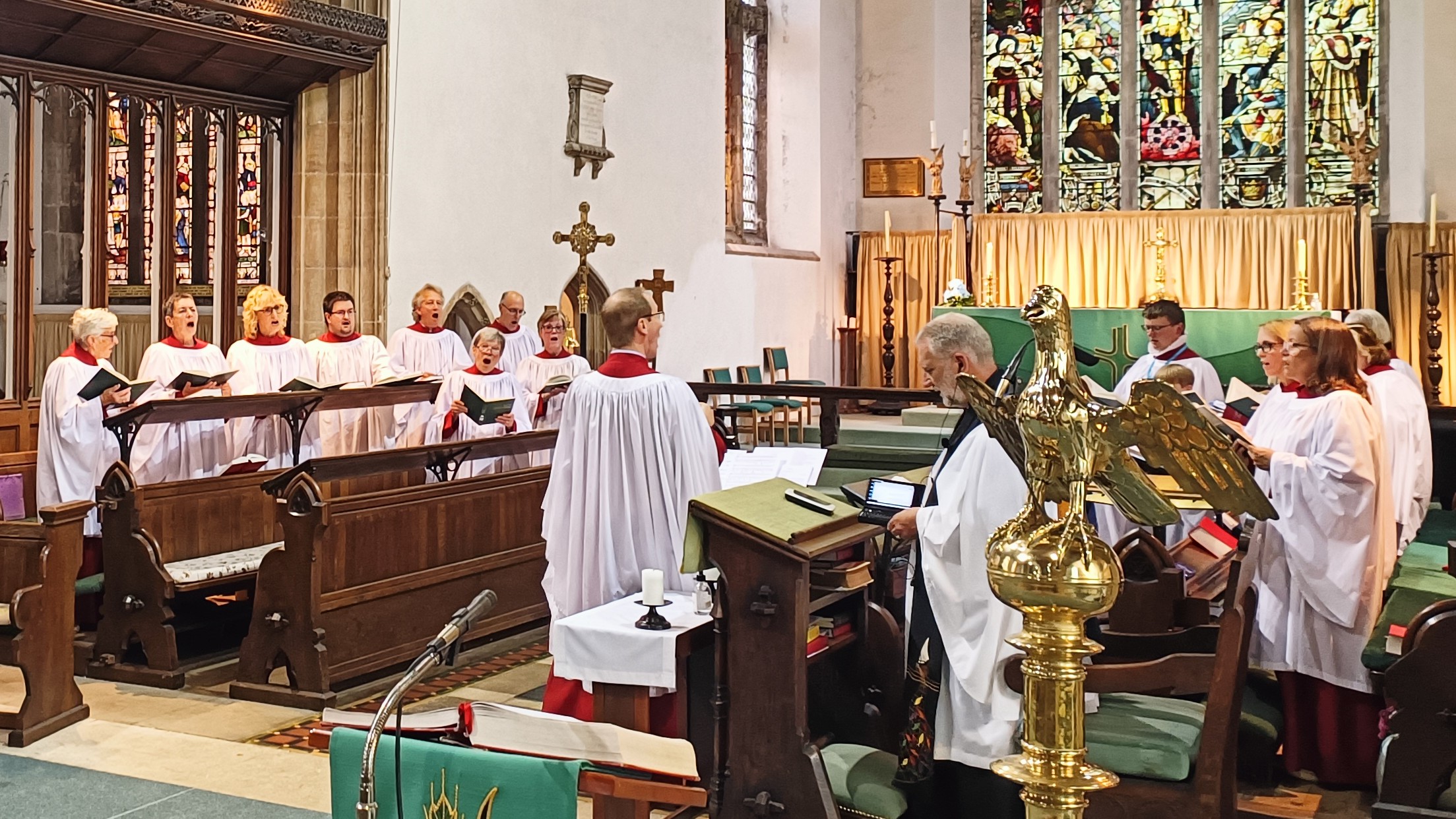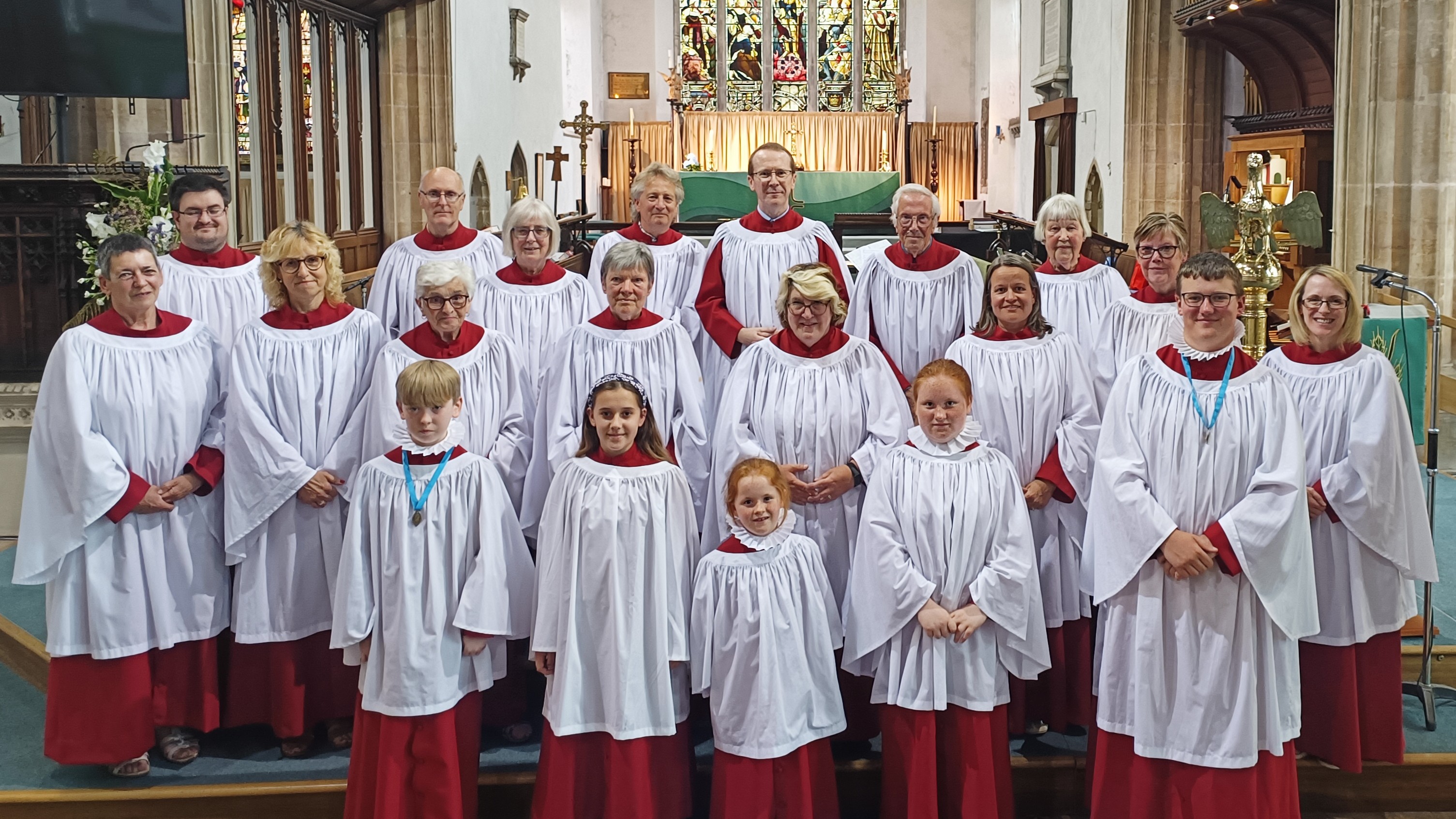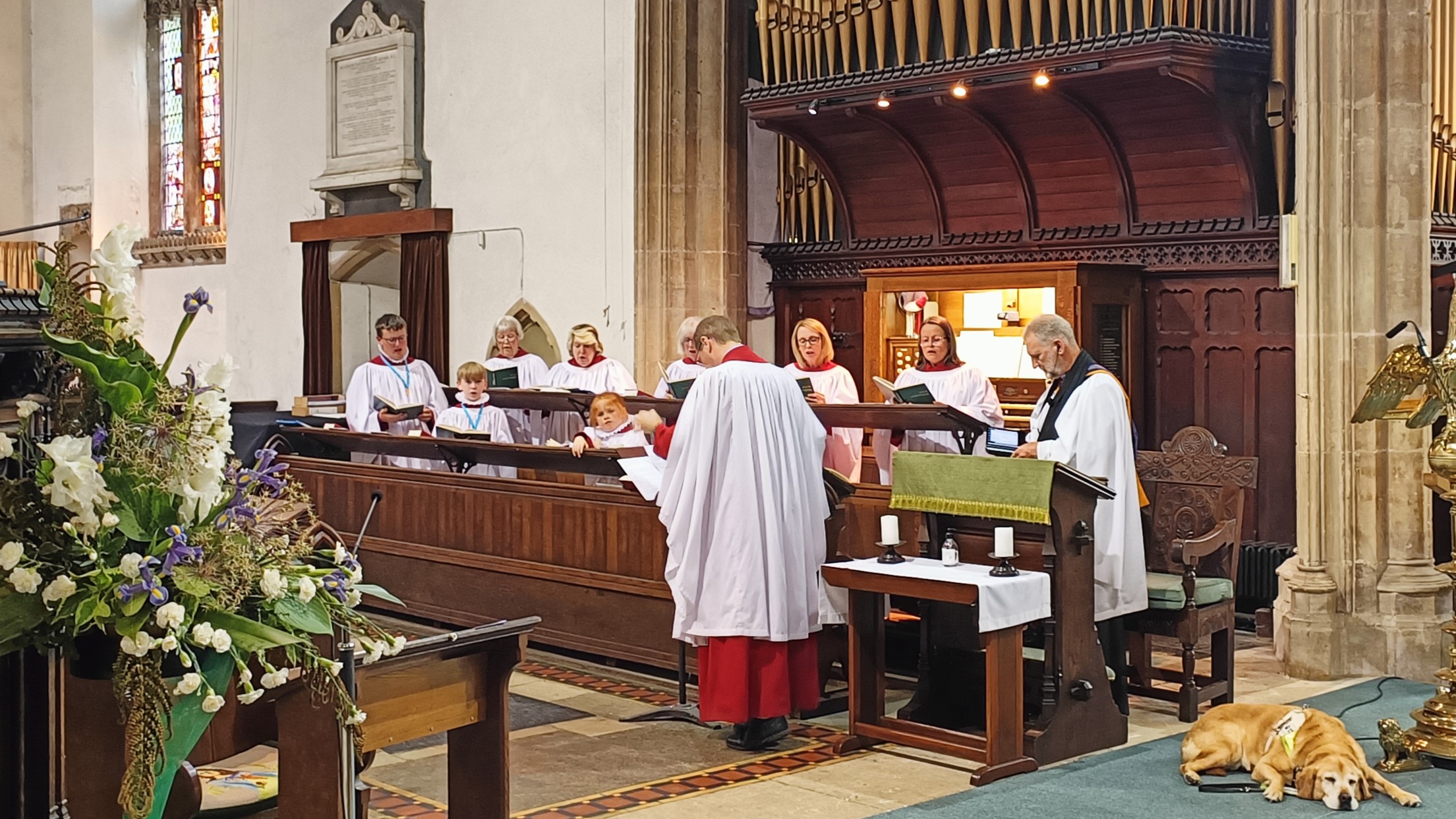
At St. Margaret's, on the second Sunday of each month, there is a Choral Evensong at 6pm (4pm between October - March)
The worship of the Christian Church has its roots in the worship of the Jewish faith out of which it grew. In the synagogue, the Scriptures were read and prayers were offered at particular times of the day. They would mark the passing of time and the work of God in creation. As Christianity developed, the Church appropriated this pattern. Initially, Christian communities in the major cities would gather at the beginning and ending of each day to offer a popular form of prayer focused on the cross (morning) and the lighting of lamps (evening).
 As monastic communities became established, the pattern of daily prayer became more organised and frequent. By the Middle Ages, there were seven daily services or 'Offices'. The first, Matins, would take place before daybreak; and the last, Compline, would take place before the community retired to bed. These offices would punctuate the day, and their central feature was the singing or recitation of the Psalms, along with short readings from Scripture. These services were very much designed for members of monastic communities and the professional clergy. Lay people often adopted a different pattern of daily prayer.
As monastic communities became established, the pattern of daily prayer became more organised and frequent. By the Middle Ages, there were seven daily services or 'Offices'. The first, Matins, would take place before daybreak; and the last, Compline, would take place before the community retired to bed. These offices would punctuate the day, and their central feature was the singing or recitation of the Psalms, along with short readings from Scripture. These services were very much designed for members of monastic communities and the professional clergy. Lay people often adopted a different pattern of daily prayer.
In the aftermath of the Reformation in England (and the dissolution of the monasteries) daily worship was simplified. The Book of Common Prayer (first published in 1549) provided two daily offices. The morning service (called Morning Prayer or Mattins) incorporated elements from the mediaeval services of Matins and Lauds; and the evening service (called Evening Prayer or Evensong) combined the mediaeval services of Vespers and Compline. They were devised so as to provide both clergy and laity with a 'common' form of daily prayer. Both services have as their central feature the recitation or singing of the Psalms; readings from Scripture and prayers for the Church, the world and those in need. Both services have songs or 'Canticles' associated with them. Evensong has Magnificat anima mea Dominum (or the song of Mary from Luke's Gospel) and Nunc Dimittis (or the Song of Simeon from Luke's Gospel).

 Following in the cathedral music tradition, at this service the music is principally sung by the church choir. It offers an opportunity for the congregation to participate by silently associating themselves with the words that the choir offers on behalf of all of us. Many people find that this provides a space in which to be still; to allow those thoughts and feelings, which are otherwise suppressed by a busy life, to come closer to us than life outside allows; and to catch a vision of God's glory in the beauty of holiness.
Following in the cathedral music tradition, at this service the music is principally sung by the church choir. It offers an opportunity for the congregation to participate by silently associating themselves with the words that the choir offers on behalf of all of us. Many people find that this provides a space in which to be still; to allow those thoughts and feelings, which are otherwise suppressed by a busy life, to come closer to us than life outside allows; and to catch a vision of God's glory in the beauty of holiness.
